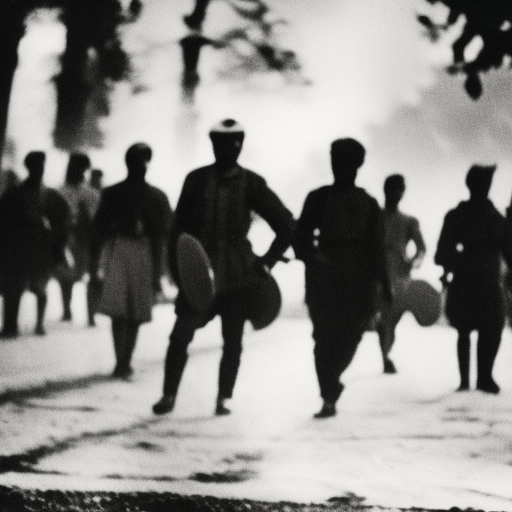Summary: Revolt of the Batavi
The Revolt of the Batavi was a major uprising by the Batavi tribe against the Roman Empire in the year 69 AD. The Batavi, a Germanic tribe living in the region that is now the Netherlands, had been serving as loyal allies of the Romans for many years. However, they grew increasingly dissatisfied with Roman rule and decided to rebel.
Background
The Batavi had a long history of military service in the Roman army and were renowned for their skills as cavalry and infantry soldiers. They were granted special privileges and were exempt from certain taxes in return for their military service. However, tensions began to rise when the Roman governor of the province of Germania Inferior, Gaius Julius Civilis, accused the Batavi of disloyalty and mistreated their leaders.
The Revolt
In response to the mistreatment, the Batavi revolted against the Romans. Led by Civilis, they quickly gained support from other Germanic tribes in the region. The rebels attacked Roman garrisons and settlements, causing significant damage and casualties. The Roman army initially struggled to contain the rebellion, as they were caught off guard by the sudden uprising.
Strategic Brilliance
Civilis proved to be a skilled military strategist and used his knowledge of Roman tactics to his advantage. He employed guerrilla warfare tactics, ambushing Roman forces and using the difficult terrain of the region to his advantage. The Batavi also had the advantage of local knowledge, which allowed them to launch surprise attacks on Roman supply lines and disrupt their communication networks.
Galba’s Death and Vespasian’s Rise
During the revolt, the Roman Empire was in a state of political turmoil. Emperor Galba had been assassinated, and the empire was plunged into a period of civil war known as the Year of the Four Emperors. The revolt of the Batavi coincided with the rise of Vespasian, who eventually emerged as the victor and established the Flavian Dynasty.
Final Defeat
As the civil war came to an end, the Roman forces were able to focus their attention on crushing the Batavi revolt. The Roman general Quintus Petillius Cerialis led a successful campaign against the rebels, gradually regaining control of the region. The Batavi were eventually defeated, and Civilis was forced to surrender.
Legacy
Despite their defeat, the Batavi revolt had a lasting impact on the Roman Empire. The rebellion highlighted the vulnerability of Roman rule and the potential for unrest among its subject peoples. The Roman authorities were forced to reassess their treatment of allied tribes and make concessions to prevent further uprisings. The Batavi themselves continued to serve in the Roman army and maintained a degree of autonomy within the empire.
In conclusion, the Revolt of the Batavi was a significant uprising by the Batavi tribe against the Roman Empire. Led by Civilis, the Batavi rebels employed guerrilla warfare tactics and gained support from other Germanic tribes. The revolt coincided with the political turmoil in the Roman Empire and was eventually crushed by the Roman forces. Despite their defeat, the revolt had a lasting impact on Roman rule and led to changes in the treatment of allied tribes.












